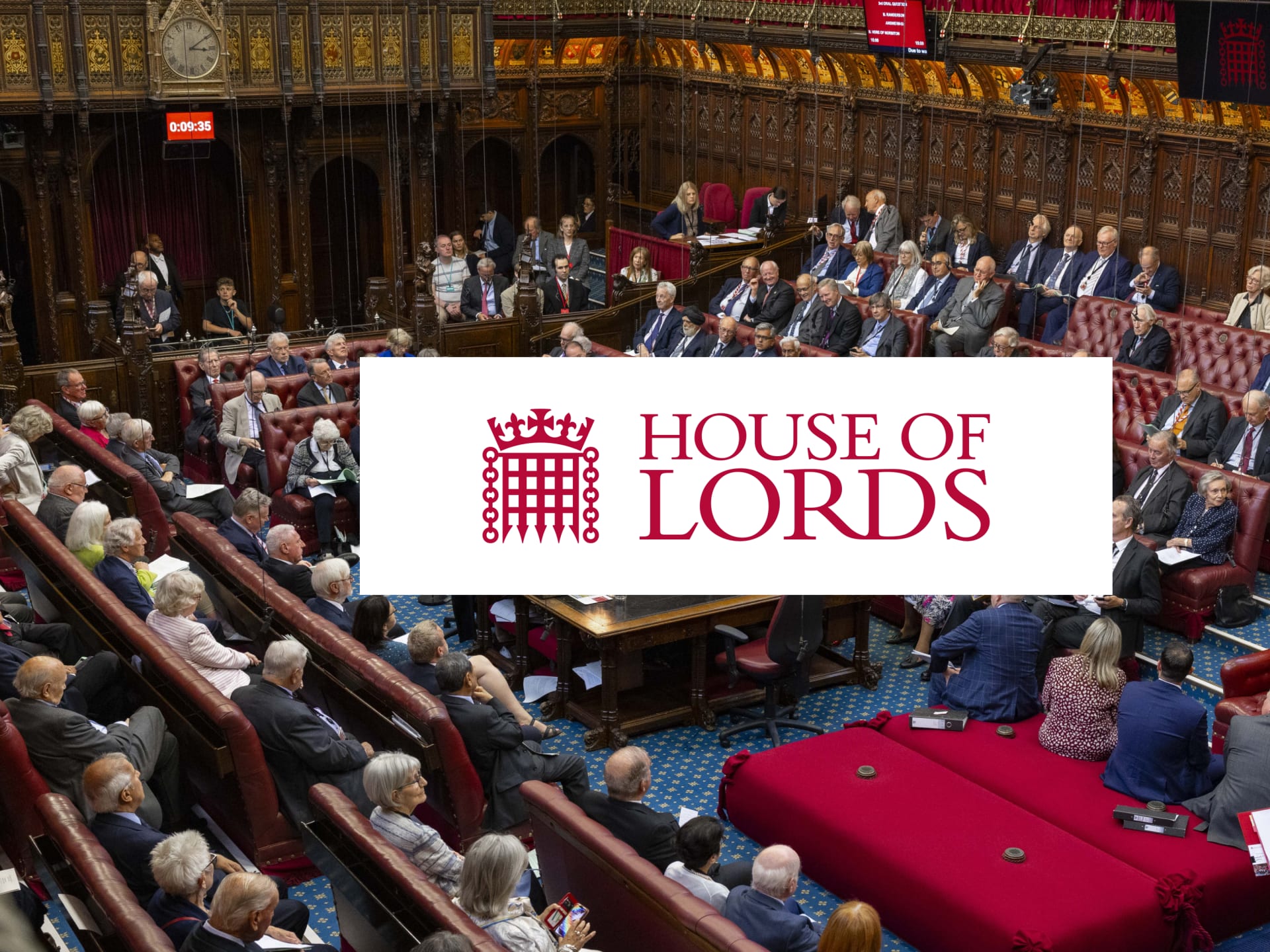Garfield AI CEO Discusses Regulatory Approval and Legal Transformation on Non-Billable
Philip Young joined the Non-Billable podcast to share the origin story behind Garfield AI, from personal frustration with unpaid debt recovery to building the first SRA-approved AI law firm, discussing the regulatory approval process, access to justice implications, cautious approach to VC funding, and vision for AI improving rather than replacing legal work.

London, 20 May 2025 – Philip Young, former City litigation partner and co-founder of Garfield AI, appeared on the Non-Billable podcast to share the comprehensive story behind creating the first AI-powered law firm to gain regulatory approval from the Solicitors Regulation Authority. The wide-ranging conversation explored how personal frustration led to technological innovation, the SRA's lengthy but supportive approval process, and why Garfield represents a whole new category of legal services rather than simply another AI tool.
From City Lawyer to American Road Trip to AI Pioneer
Philip traced his journey from founding boutique City firm Cooke, Young & Keidan (CYK) through a 25-year litigation career to the unlikely moment of inspiration that sparked Garfield. After retiring from CYK, Philip took a road trip across America where he encountered the first wave of generative AI tools.
The combination of this technological exposure and his long-standing frustration with how difficult it was for small businesses to recover unpaid debts, even when the law was clearly on their side, crystallized into a vision: an intelligent assistant capable of running an entire small claims case, from letter before action to trial bundle.
This wasn't about incremental improvement to existing legal services. Philip saw an opportunity to build something game-changing that could address a fundamental access to justice problem affecting UK small businesses.
The Origin: Personal Frustration with Systemic Failure
The podcast explored the personal dimensions of Garfield's origin story. Throughout his litigation career, Philip witnessed countless situations where small businesses were legally entitled to payment but lacked practical means to recover debts. Traditional legal routes were simply too expensive relative to claim values, creating a justice gap where legal rights existed on paper but couldn't be enforced in practice.
This systemic failure particularly affected the kind of small businesses Philip knew personally: tradespeople, small contractors, and service providers who regularly faced customers who simply refused to pay, knowing that pursuit would be uneconomical.
The realization that new AI capabilities might finally enable affordable, accessible debt recovery transformed Philip's career frustration into entrepreneurial opportunity.
How Garfield Actually Works
Philip provided detailed insights into Garfield's functionality, explaining how the platform manages complete small claims cases:
Letter Before Action
The process begins with professionally drafted pre-action letters that comply with Civil Procedure Rules requirements.
Claim Preparation and Filing
Garfield prepares claim forms and particulars of claim, then files them with the county court through digital integration.
Case Management
Throughout the case lifecycle, Garfield handles procedural steps, tracks deadlines, and manages documentation.
Trial Preparation
For cases proceeding to trial, Garfield prepares comprehensive trial bundles, skeleton arguments, and talking notes: everything a litigant needs except courtroom advocacy itself.
This end-to-end capability distinguishes Garfield from legal AI tools that assist with discrete tasks. Garfield manages the entire process, operating as a law firm rather than merely supporting one.
The SRA's Lengthy But Supportive Approval Process
A significant portion of the conversation focused on the SRA approval journey, a process Philip described as lengthy but ultimately supportive. The discussion provided rare insights into what regulatory approval for an AI law firm actually entails.
Thorough Examination
The SRA examined every aspect of Garfield's operations, from technical architecture to ethical safeguards, quality controls to accountability frameworks.
Supportive Engagement
Despite the rigor, Philip experienced the SRA as genuinely engaged and supportive, working to understand the innovation and identify appropriate oversight mechanisms rather than simply blocking new approaches.
Setting Precedent
As the first AI-powered law firm seeking approval anywhere in the world, both Garfield and the SRA were navigating uncharted territory, establishing frameworks that will likely influence future AI legal service regulation globally.
Validation
The eventual approval provided powerful validation, not just of Garfield's specific approach, but of the principle that AI legal services can operate responsibly within regulatory frameworks.
Addressing the Court Overwhelm Concern
Philip tackled head-on the concern that Garfield might overwhelm small claims courts with increased volumes. He explained why this concern is misplaced:
Most Claims Settle
Approximately 70% of debt claims never reach disputed hearing stages. The mere existence of a properly filed claim with supporting evidence often prompts payment or settlement.
Addressing Unrepresented Litigants
Courts currently struggle with unrepresented litigants who lack proper documentation and understanding of procedures. Garfield-assisted claimants arrive properly prepared, actually reducing court burden.
Revenue for Underfunded Courts
Increased claim volumes generate court fees that provide revenue to support chronically underfunded areas like family and criminal courts, a point senior judiciary have made in supporting Garfield.
Access to Justice Benefit
From a justice system perspective, enabling legitimate claims to be pursued efficiently serves the fundamental purpose of courts: resolving disputes according to law.
AI Improving Rather Than Replacing Legal Work
Philip articulated a vision of AI improving rather than replacing legal work, a crucial distinction often lost in discussions about legal technology's impact on the profession.
Eliminating Drudgery
AI can handle routine, repetitive tasks that few lawyers enjoy: massive document reviews, disclosure exercises, and administrative work that consumes time without providing professional satisfaction.
Enabling Focus on Value
By automating routine work, AI frees lawyers to focus on aspects of practice that require human judgment, strategic thinking, client relationships, and advocacy: the work that attracted most lawyers to the profession initially.
Expanding Markets
Rather than just redistributing existing legal work, AI can make previously uneconomical services viable, expanding the overall market for legal services and creating new opportunities.
Enhancing Quality
AI consistency and thoroughness can enhance quality in routine matters, reducing errors and ensuring procedural compliance while humans focus on substantive strategy.
Cautious Approach to VC Funding
Despite "a flurry of inbound interest" from venture capital investors, Philip revealed a cautious approach to funding. The podcast explored his reasoning:
Maintaining Control
Taking substantial VC funding often means relinquishing significant control over company direction, potentially forcing choices that prioritize rapid growth over quality and mission alignment.
Pressure for Returns
VC investors require substantial returns within specific timeframes, potentially creating pressure for monetization strategies that conflict with Garfield's access to justice mission.
Sustainable Growth
Philip's preference appears to be sustainable, measured growth that maintains quality and regulatory compliance rather than aggressive scaling that might compromise either.
Learning from Legal Tech History
The legal technology sector has seen numerous examples of heavily-funded startups that grew rapidly but struggled to deliver sustainable value. Philip seems determined to avoid repeating those patterns.
This cautious approach reflects Philip's legal background, understanding risks, planning carefully, and prioritizing long-term sustainability over short-term hype.
A New Category of Legal Services
The podcast framed Garfield as representing "a whole new category of legal services as much as it is about a new AI tool", a crucial distinction Philip emphasized throughout the conversation.
Not Just a Tool
Unlike AI products that law firms use, Garfield is itself a law firm, delivering services directly to clients under regulatory oversight.
Not Just Automation
Garfield doesn't simply automate existing processes; it makes viable an entire category of legal work previously uneconomical to pursue.
Not Just Technology
While AI enables Garfield, the innovation encompasses business model, regulatory approach, and service delivery design as much as technical capability.
This category-creation framing helps explain why Garfield has attracted such attention from judiciary, regulators, media, and the legal profession, it represents something genuinely new rather than incremental improvement.
Access to Justice at the Core
Throughout the conversation, Philip returned repeatedly to access to justice as Garfield's core mission. This isn't marketing positioning, it's the fundamental problem Garfield was built to solve.
UK SMEs are owed billions in unpaid debts. Traditional legal routes make pursuing many of these claims uneconomical. The result is a justice system that provides legal rights on paper but no practical mechanism for enforcement at certain claim values.
Garfield addresses this systemic failure by making debt recovery affordable and accessible, transforming what would be write-offs into recoverable debts.
The Role of Human Oversight
Philip discussed the importance of human oversight in Garfield's operations, explaining how the platform combines AI capability with human accountability:
- Users review and approve all documents before sending
- Lawyers oversee platform operations and are accountable for outcomes
- The system provides transparency about what it's doing and why
- Quality controls and testing ensure reliability
This human-in-the-loop approach addresses legitimate concerns about fully autonomous AI legal services while maintaining the efficiency benefits that make the service economically viable.
Legal Services in the Next Decade
Looking forward, Philip shared perspectives on how legal services might be delivered in the next decade:
- Increased AI Integration across all aspects of legal practice
- Specialization with AI handling specific process-driven matters excellently
- Hybrid Models combining AI efficiency with human judgment where each adds most value
- Market Expansion as AI makes previously uneconomical services viable
- Regulatory Evolution as frameworks adapt to oversee new service delivery models
Listen to the Full Episode
The complete conversation is available on the Non-Billable podcast, accessible via Apple Podcasts, Spotify, and at nonbillable.co.uk.
The episode provides essential listening for anyone interested in legal technology innovation, regulatory approaches to AI, or the future of legal service delivery.
About Garfield AI Garfield AI is the world's first AI-driven law firm, approved by the Solicitors Regulation Authority. The platform helps businesses recover small debts through complete case management from initial letters before action through trial preparation, demonstrating how AI can create entirely new categories of accessible legal services. Founded by senior City litigation lawyer Philip Young and quantum physicist Daniel Long, Garfield is transforming access to justice for UK SMEs while establishing frameworks for responsible AI legal service regulation. Visit garfield.law to learn more.
About the Author

Hugo Rawling
Legal Engineer
In other news


